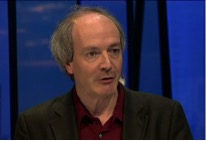
|
|
![]()
Keynote Speakers
Trent Jaeger is a Professor of Computer Science and Engineering at The Pennsylvania State University. He is also co-director of the Systems and Internet Infrastructure Security (SIIS) Lab, a research laboratory focused on the study of security in diverse network and computer environments.
His main research area is computer security. Trent is interested in tools and techniques to enable developers to build higher integrity computer systems. This work applies systems and programming language techniques to harden deployments, primarily for the Linux operating system.
Title: Challenges in Making Access Control Sensitive to the "Right" Contexts
Access control is a fundamental security mechanism that both protects processes from attacks and confines compromised processes that may try to propagate an attack. Nonetheless, we still see an ever increasing number of software vulnerabilities. Researchers have long proposed that improvements in access control could prevent many vulnerabilities, many of which capture contextual information to more accurately detect obviously unsafe operations. However, developers are often hesitant to extend their access control mechanisms to use more sensitive access control policies. My experience leads me to propose that it is imperative that an access control system be able to extract context accurately and efficiently and be capable of inferring any non-trivial policies.
In this talk, I will discuss some recent research that enforces context-sensitive policies by either extracting process context, integrating code to extract context from programs, or extracting user context. We find that context-sensitive mechanisms can prevent some obviously unsafe operations from being authorized efficiently and discuss our experiences in inferring access control policies. Based on this research, we are encouraged that future research may enable context-sensitive access control policies to be produced and enforced to prevent vulnerabilities.
Bart Preneel is a full professor at the KU Leuven; he heads the COSIC research group, that is a member of the iMinds Security Department. He was visiting professor at five universities in Europe. He has authored more than 400 scientific publications and is inventor of 4 patents. His main research interests are cryptography, information security and privacy. Bart Preneel has coordinated the Network of Excellence ECRYPT, has served as panel member and chair for the European Research Council and has been president of the IACR (International Association for Cryptologic Research). He is a member of the Permanent Stakeholders group of ENISA (European Network and Information Security Agency) and of the Academia Europaea. He has been invited speaker at more than 90 conferences in 40 countries. In 2014 he received the RSA Award for Excellence in the Field of Mathematics.
Title: Post-Snowden Threat Models
In June 2013 Edward Snowden leaked a large collection of documents that describe the capabilities and technologies of the NSA and its allies. Even to security experts the scale, nature and impact of some of the techniques revealed was surprising. A major consequence is the increased awareness of the public at large of the existence of highly intrusive mass surveillance techniques. There has also been some impact in the business world, including a growing interest in companies that (claim to) develop end-to-end secure solutions. There is no doubt that large nation states and organized crime have carefully studied the techniques and are exploring which ones they can use for their own benefit. But after two years, there is little progress in legal or governance measures to address some of the excesses by increasing accountability. Moreover, the security research community seems to have been slow to respond to the new threat landscape. In this lecture we analyze these threats and speculate how they could be countered.
Copyright (c) ACM SACMAT All rights reserved.


